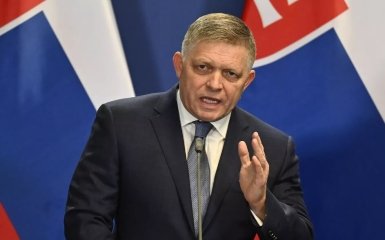The Slovak government is ready for an open conflict with Ukraine over its refusal to transit Russian natural gas. The European country is also preparing for retaliatory measures if it is unable to receive energy resources from Russia.
Points of attention
- Slovakia and Ukraine are at odds over the transit of Russian natural gas, with Slovakia preparing for possible retaliatory measures.
- Prime Minister Robert Fico cynically accused Ukrainian President Zelensky of causing the 'gas crisis' due to Ukraine's refusal to transit Russian gas.
- Slovakia refuses to provide weapons to Ukraine and threatens to oppose increased EU aid if US aid is reduced, highlighting its stance on the conflict between Ukraine and Russia.
- Ukraine plans to stop the transit of Russian gas from 2025, a decision that could have significant implications for energy supply in Europe.
- The escalating tensions highlight the complex geopolitical dynamics and energy dependencies in the region, with concerns over the future of gas transit routes and energy security.
Fico accused Zelenskyy of the “gas crisis”
Slovak Prime Minister Robert Fico made this statement at a press conference after the Council of Europe summit, which took place on December 19 in Brussels.
This is how he reacted to the words of Ukrainian President Volodymyr Zelenskyy, who warned the day before that there would be no more transit of Russian gas.
If Zelenskyy does not let our gas through, it could lead to a serious conflict. It is possible that in this situation we will have to think about retaliatory measures from Slovakia.

Robert Fico
Prime Minister of Slovakia
He admitted that he had differences with Zelenskyy regarding gas transit through Ukraine. According to Fico, in a conversation with Zelenskyy, he asked whether Ukraine would be able to transit any other gas besides Russian.
He asked if we could imagine paying for gas that finances a war.
At the same time, the head of the Slovak government emphasized that his country would not support the sanctions package that would apply to Russia's nuclear energy sector, since it depends on nuclear power generation.
If any sanctions are adopted against the Russian Federation in the future and if they concern the peaceful nuclear program, I will block such sanctions. Our nuclear power plants are stations of Russian origin, whether we like it or not.
The Prime Minister of Slovakia also admitted that his country refuses to transfer weapons to Ukraine because it does not believe in a military solution to the war between Ukraine and Russia. He recalled that Slovakia provides humanitarian support to Ukraine and supplies electricity to Ukrainians during times of electricity shortage.
At the same time, he warned that Slovakia would oppose increasing EU spending on aid to Ukraine if US President-elect Donald Trump cuts US aid.
Transit of Russian gas through Ukraine will be stopped
As stated by the Head of the Cabinet of Ministers Denys Shmyhal, from January 1, 2025, Ukraine will block the transit of Russian gas.
Denys Shmyhal draws attention to the fact that the gas transit agreement expires on January 1, 2025, at 7:00 a.m. — that's when the transit will physically be stopped.
The resumption of transit will only be possible if, at the request of the European Commission, we transport non-Russian gas through our system.
Despite this, as the head of government noted, in accordance with the Association Agreement with the EU and the Energy Charter Treaty, Ukraine is obliged to ensure the transit of Russian oil to Europe at the request of the European Commission.




